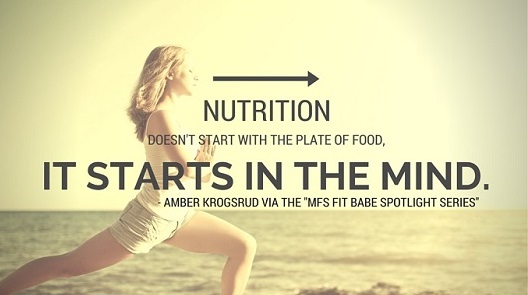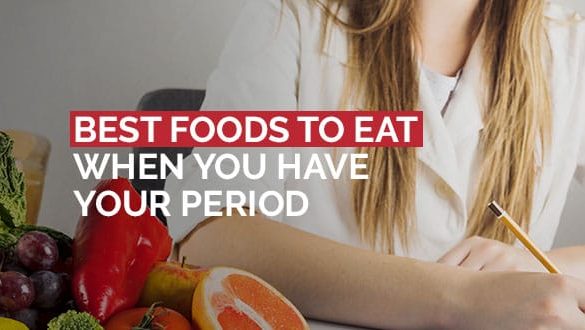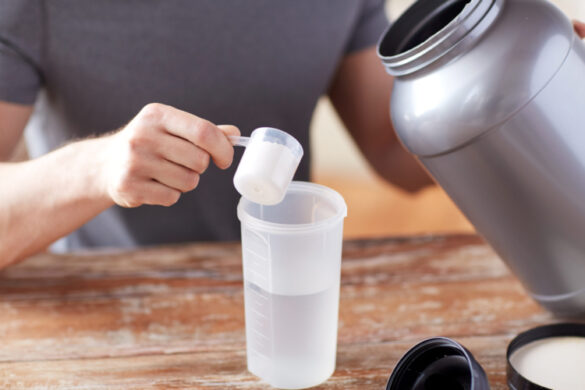Are you planning to lean out for that bikini figure for the summer? If you are, then you’re likely looking for the best shredding diet for females. Unfortunately, you’ll likely have found several bits and pieces of information that are inaccurate or — worse yet — dangerous and detrimental to your fat loss efforts.
Left and right, diet misconceptions plague the internet. Luckily, in my years of experience, I’ve found several dietary recommendations that work but require further clarification.
Join me as I clarify the most popular dietary recommendations to fast-track your fat loss efforts and keep fat at bay.
1. “Don’t Eat Fat” Should Be “Eat Healthy Fats”
Compared to protein and carbohydrates that have four calories to a gram each, fat has nine calories — almost twice the number of calories as carbohydrates and fat.
When the commonly accepted idea of “calories in, calories out,” is factored in, it makes sense to consume less fats. For their calorie content, fats can jack up the number of calories which can add up over time.
Does this mean you need to avoid fats completely? Research is showing that the answer is “no.” We now know that fat loss is a lot more complex than monitoring calories (although it helps). Hormones play a significant role in the rate of fat loss. Fats are the building blocks of many hormones.
By adding more healthy fats to your diet, you’ll be creating a hormonal environment that contributes to fat loss and other beneficial health processes.
2. “Carbs Are the Enemy” Should Be “Refined Carbs Are the Enemy”
The idea that carbs lead to fat gain is apparent in the recent resurgence of the Keto Diet. Indeed, diets that are low in carbohydrates can cause weight loss. Unfortunately, for the most part, the weight loss is temporary as the reduction in glycogen causes the body to dump water. The weight loss you see on the scale following a low-carb diet is not fat loss — it’s water loss.
This can be both good and bad. It does lead to a more shredded look if you’re already lean. However, eating even a small amount of carbohydrates can cause the needle on the scale to move to the right.
In truth, carbohydrates are good for weight loss and are an absolute must for your workouts and daily functioning. They just need to be carbohydrates from fruits, vegetables, and some root crops like sweet potatoes.
What you need to avoid are refined carbohydrates like baked goods, sugar, and confectioneries.
3. “Weight Loss Is a Sign that a Diet Works” Should Be “Fat Loss Is an Indicator of Diet Success”
The effectiveness of a diet has always been based on numbers on a scale. In other words, if the needle moves to the left, the diet works. If it moves to the right or doesn’t move at all, the diet isn’t effective. Unfortunately, weight is only part of the recomposition equation.
Weight is a combination of our bones, skin, and body fluids — including water. The latter can change throughout the day as you sweat, breathe, and urinate — and this change occurs regardless of what diet you’re following.
The best indicator of the success of a shredding diet for females is fat loss. Fat loss is noticeable not on a scale (not all the time, anyway) but in how clothes fit and muscular definition.
4. “Eat Less Calories” Should Be “Eat Sufficient Calories, and Eat the Right Kind”
The statement “calories in, calories out” may be correct. However, not all calories will affect your weight loss similarly.
A calorie from broccoli will be the same amount as a calorie from an ice cream cone. However, as mentioned earlier, there’s more to consider when it comes to fat loss.
Indeed, a food full of sugar can have more calories. However, the higher sugar content leads to an insulin spike, causing fat retention. Also, it’s easy to over consume high-sugar food, causing the calories to pile up.
By comparison, a diet that’s high in protein, healthy fats, and clean carbohydrate sources can prevent overconsumption. The calories in these foods will remain the same. However, because the food sources of these calories are satiating, they keep you energized and full — even if you consume less of them. This is key to a sustainable shredding diet for females.
5. “A Shredding Diet for Females Is THE Solution” Should Be “A Shredding Diet Is Part of the Solution”
Following a diet is crucial to any recomposition goal — whether it’s building muscle or losing an extra few inches off the thighs. Nevertheless, it’s part of the fat-loss equation. In truth, simply following a shredding diet for females will not lead to lasting results. The other parts of the recomposition pie are exercise, sleep, hydration, and stress management.
Exercise can help burn calories and build muscle, creating the right environment for a metabolic spike. Sleep and hydration are essential to recovery. Pair sleep and hydration with stress management, and you’ll be keeping your hormones balanced to aid your fat-loss journey.
6. “Breakfast Is the Most Important Meal of the Day” Should Be “The First Meal of the Day Is the Most Important Meal”
For the longest time, studies have hailed breakfast as the pivotal meal for fat loss. Of course, there’s a difference between breakfast and the time you break a fast.
You might think that these two statements mean the same thing. On the contrary, the first meal of the day doesn’t need to be what most call “breakfast.” Depending on your lifestyle, it can be lunch. It can even be an early dinner if you eat once a day.
It’s important to give a lot of thought to the first thing you eat during the day and to eat at a calorie deficit. Whatever the time of day you choose to break your fast, always enjoy a meal loaded with protein, sprinkled with complex carbs and healthy fats.
As long as you follow this tip, it doesn’t matter what time you eat.
7. “Eating Before Bed Will Lead to Fat Gain” Should Be “Eating Excessively Leads to Fat Gain”
Another diet myth that has been peddled for years is the idea that eating carbs before bed causes fat to build up. This comes from the notion that metabolism slows down during sleep.
Yes, many of the body’s functions slow down while we sleep. However, metabolism quickly spikes as soon as we wake up, thereby offsetting the metabolic deficits sleep may have caused.
With that in mind, it doesn’t really matter when a person eats. What matters is the quality and quantity of calories. Regardless of the time, eating too much will cause a person to gain body fat.
Eat, Live, and Lean Out
Eating to lean out for the summer doesn’t need to be complicated. Most importantly, a shredding diet for females doesn’t need to be too restrictive.
The above-mentioned tips are clarifications of some of the most commonly accepted and recommended dietary tips today. Put these clarifications into practice, and not only will you shred for summer — you’ll be able to stay lean without any feelings of deprivation.
Sources:
https://www.nal.usda.gov/legacy/fnic/how-many-calories-are-one-gram-fat-carbohydrate-or-protein
https://www.yourhormones.info/hormones/leptin/
https://www.healthline.com/nutrition/good-carbs-bad-carbs
https://www.healthline.com/health/weight-fluctuation#daily-diet
https://www.webmd.com/diet/features/diet-truth-myth-eating-night-causes-weight-gain










